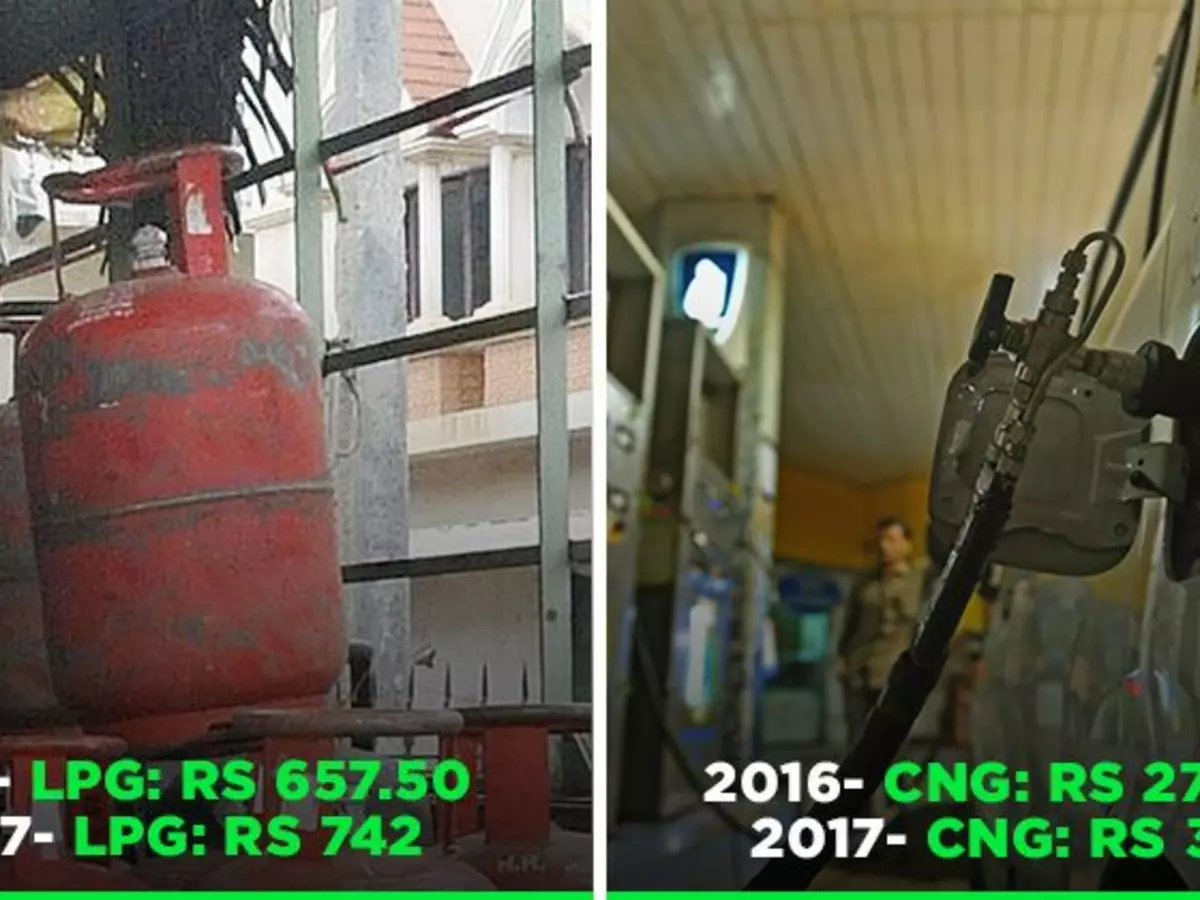Get Ready To Pay More For CNG, LPG From April 1, Govt To Raise Gas Price Highest In 2 Years
Government sources said the benchmark price is expected to go up to $3.06 per unit (million British thermal unit, or mBtu) from $2.89 at present.

Consumers using natural gas to run their vehicles (CNG, or compressed natural gas) and cooking gas (PNG, or piped natural gas) look set to pay more from next month as the benchmark price for natural gas produced from domestic fields is expected to hit a two-year high during the six-monthly revision due on April 1.
Government sources said the benchmark price is expected to go up to $3.06 per unit (million British thermal unit, or mBtu) from $2.89 at present.
This will be the highest gas price since $3.82 for the six months ended March 2016.

bccl/representational image
The revision will raise the cost of manufacturing urea, which uses domestic gas as feedstock just like companies providing CNG and PNG services. But the impact on power tariffs will hardly be felt as less than 8% of total electricity comes from gas-fired plants.
The price increase will, however, shore up the fortunes of producers such as Reliance Industries from the private sector as well as state-run ONGC and OIL at a time when they are altogether investing more than $10 billion into new gas fields.
All these companies have been grumbling since October 2014, when the new gas pricing regime was introduced.

bccl/representational image
Since the new pricing formula soon saw benchmark gas prices sliding every six months in tune with the fall in rates at global gas trading hubs, the companies maintained that such low prices made their gas field operations unviable.
State-run ONGC will be the biggest gainer. Back-ofthe-envelope calculations indicate that at its current volume of production, the company¡¯s annual revenue goes up by Rs 4,100 crore and post-tax profit rises by Rs 2,700 crore on every dollar increase in domestic gas price.

bccl/representational image
The benchmark price was raised for the first time in nearly three years to $2.89 per unit in October last year after five rounds of reductions. Under the new pricing regime introduced by the NDA government, gas prices are to be revised every six months, based on average rates in gas-surplus markets like the US, Russia, FSU (former Soviet Union) countries and Canada.
The new formula considers weighted average price at Henry Hub of the US, National Balancing Point of the UK, rates in Alberta (Canada) and Russia with a lag of one quarter to work out a domestic benchmark.
